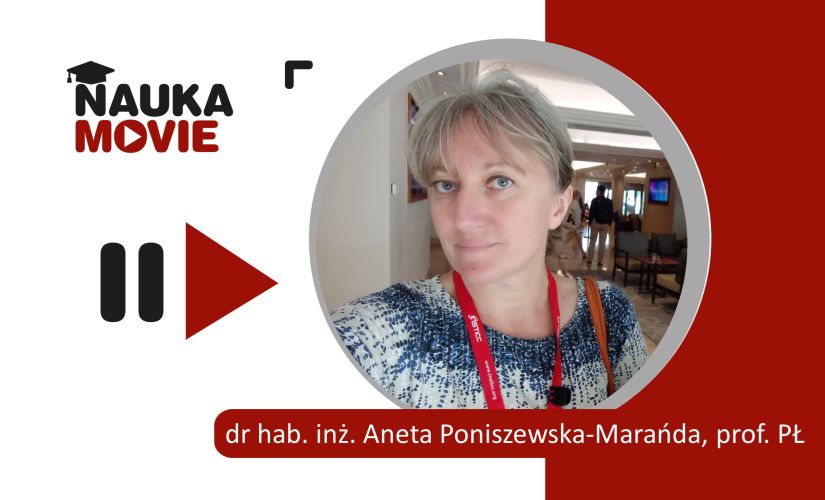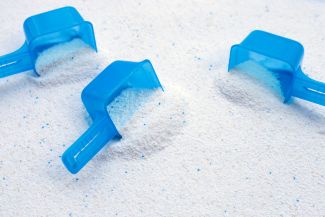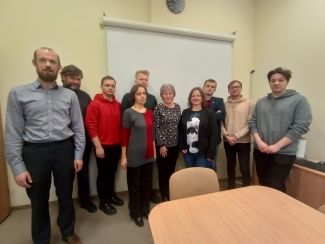What will consumers gain from your research?
The main function of the system is, of course, quality and product safety control. It is about detecting goods with so-called 'dual quality'. Unfortunately, this is a big problem affecting consumers in various countries. I do not mean that washing powders or dishwasher tables sold on the Polish market are of lower quality than those sold on the German or British market. We have probably become used to this, although it is not a good statement. Perhaps it would be better to say that we are aware of it, because we should not get used to it. We have to fight it. And this is where I hope our Salus system can help.
What is the scope of the project?
SALUS involves the design, implementation and deployment of an IT system to control product quality. The solution is based on feedback obtained from online sources, such as websites, social networks, auction portals and online shops. The main tasks of the system are 3. Firstly, to analyse the available opinions (numerical, text, audio and video) in order to select products for laboratory testing. Second, to automate the process of obtaining product reviews from online sources. Thirdly, creating a platform for the development of Artificial Intelligence (AI) based solutions.
Which products will be taken under scrutiny?
During the course of the project, the system will inspect products from six groups, namely white and colour washing powders. dishwasher tablets, thermal cups, sun cream and baby nappies. However, in the future the system will eventually be able to control products from any product category. Of course, everything will depend on the needs of our end customer, which is the Office of Competition and Consumer Protection (UOKiK).
How does the testing work?
Each product has its own characteristic parameters that need to be tested in order to detect potential duplicate quality. We therefore define a set of characteristics specific to each product group, which we then assess on the basis of consumer opinions obtained from online sources. Of course, such information could be analysed "manually" by each of us, however, the vast amount of information that is now available through the Internet makes such an opinion completely unfeasible without the support of IT solutions.
Furthermore, an analysis of the solutions available on the market has shown that they are insufficient in the face of the increasing demands created by the shift of commerce to the web. Existing solutions commonly use manual and/or direct methods to obtain consumer opinions, often in isolation from the rest of the system, e.g. in the form of surveys. This is associated with high time-consumption, high cost and limited survey coverage. The main feature of the SALUS system proposed within the project is the high level of automation of processes and functions, thanks to the use of Artificial Intelligence mechanisms and Blockchain technology.
With which institutions/entities do you plan to collaborate on implementation?
As I have mentioned several times, our main client is the UOKiK and it is with them that we collaborate the most, although we do so mainly through the NCBiR, which is in turn our grant provider. In addition, during the course of the project we contact potential providers of product feedback, from whom we need to obtain data for our system, without which none of its components could function properly.
Who is part of the team and what are their tasks?
The project is carried out as part of a consortium together with Kodegenix, an IT company from Lodz, and the Institute of Computer Science at the Warsaw University of Technology. The team working at Lodz University of Technology includes research and teaching staff, doctoral candidates and students of computer science at the Faculty of Technical Physics, Information Technology and Applied Mathematics.
Why is it worth being a scientist?
I guess every scientist has their own reasons. For me, it is primarily freedom, understood as the freedom to determine what I do scientifically - of course, sometimes we are limited by certain external factors, but to a large extent, and sometimes to a very large extent, we can decide for ourselves what we are going to do, what we can focus on, what we can develop or create. This is a huge value.
Of course, the people we work with are very important - you can't do too much without them, especially in this day and age when everything is moving faster and faster - and especially in IT. I am fortunate in this respect. Our team with whom we implement the Salus project is a group of professional scientists, committed to their work.
Interview by Agnieszka Garcarek-Sikorska



